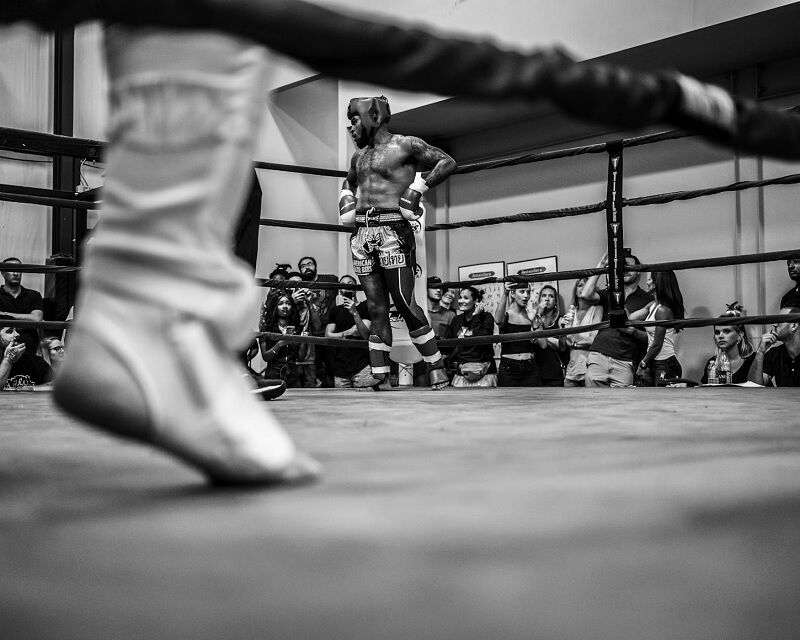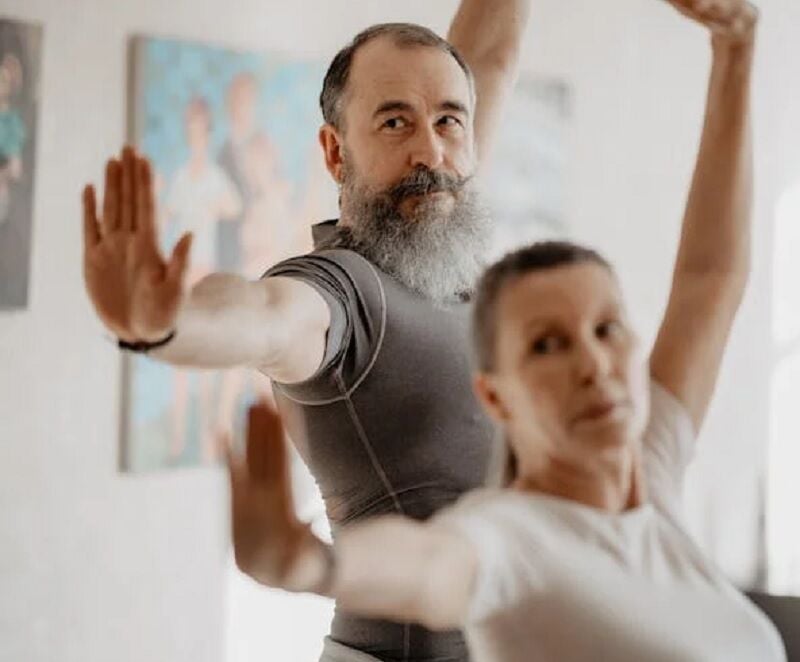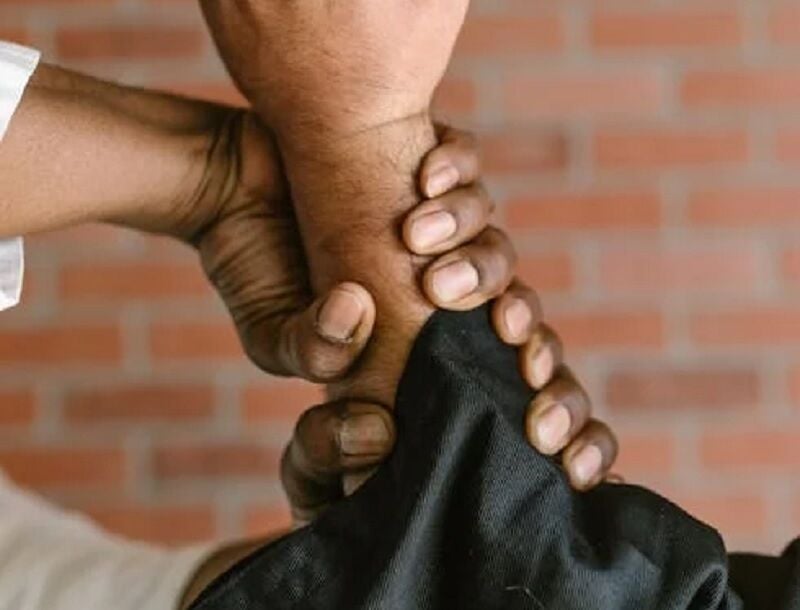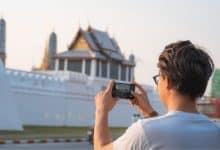How doing Muay Thai in retirement fuels body and mind

Embarking on a new journey in retirement might seem daunting, but what if it could be both exhilarating and beneficial for your health? Enter Muay Thai, a martial art with deep roots in Thailand’s history, offering a unique blend of physical and mental benefits. It’s not just a sport; it’s a lifestyle that could redefine your golden years.
Imagine training in the very birthplace of Muay Thai, surrounded by the beauty of Thailand and learning from the legends themselves. Regardless of your martial arts background, gyms across Thailand welcome retirees with open arms, providing authentic training experiences that cater to all levels. It’s an opportunity to immerse yourself in a rich culture while staying active.
Muay Thai in retirement isn’t just about physical fitness; it’s a path to a more vibrant, engaged life. You’ll discover a community of like-minded individuals, embrace new challenges, and even find a sense of purpose. Let’s dive into why Muay Thai could be the perfect retirement adventure for you.
Muay Thai
Training in Muay Thai can significantly enhance your physical fitness. It involves a comprehensive workout that improves cardiovascular health, flexibility, and muscle strength. Muay Thai is tailored to all fitness levels, meaning it’s never too late to start. Even in retirement, you can find programs designed for beginners, ensuring a safe and gradual transition into the sport.
Thailand’s tropical climate and picturesque landscapes add a unique dimension to training. Imagine practising your moves on the beach at sunrise or in a traditional gym nestled in lush countryside. The serene and beautiful settings make the challenging days worth it. It’s not just about the sport; it’s about experiencing life in a vibrant environment.
Learning Muay Thai from experienced coaches and legends in Thailand offers unparalleled insights. These trainers share not only techniques but also stories and philosophies behind Muay Thai. It’s an immersive experience where you’re not just attending a class; you’re being welcomed into a community. Building connections with trainers and fellow enthusiasts adds a layer of social engagement often sought after in retirement.
Training in Muay Thai during your retirement isn’t just about staying physically active. It’s an opportunity to challenge yourself, learn new skills, and immerse yourself in a rich cultural tapestry. Thailand provides the perfect backdrop for this adventure, combining the authenticity of the sport with breathtaking scenery and warm hospitality. Muay Thai in retirement offers a pathway to a fulfilling life, where every punch, kick, and knee strike carries the weight of tradition and the promise of personal growth.
Benefits of doing Muay Thai after retirement

Physical benefits
Practising Muay Thai in retirement is a gateway to unparalleled physical benefits. Increased muscle strength is one of the primary advantages, ensuring that your muscles remain robust and functional. It’s a full-body workout that engages every muscle group, promoting muscular endurance and flexibility. With each session, you’ll notice improvements in your cardiovascular health. Muay Thai’s intense nature boosts heart rate, helping to prevent heart diseases and increase stamina. Moreover, it aids in maintaining a healthy weight, as the sport burns a high number of calories. The tropical climate of Thailand contributes to sweating out toxins, enhancing the detoxification process.
- Cardiovascular Health
- Bone Health
- Weight Management
- Strength and Flexibility
Mental benefits
Engaging in Muay Thai during retirement isn’t just a physical journey; it’s a mental voyage as well. This martial art aids in reducing stress levels significantly. The focus required during training diverts your mind from daily worries, grounding you in the present moment. Furthermore, the learning and mastery of new techniques foster a sense of accomplishment, elevating your self-esteem and overall mood. It’s not just about fighting; it’s about developing a mindfulness practice that helps combat anxiety and depression, essential for mental health in retirement.
- Stress Reduction
- Cognitive Function
- Discipline and Focus
- Social Connections
Social benefits
Retirement can be an isolating experience for many, but Muay Thai offers a vibrant community. Training in Thailand, the heartland of Muay Thai, provides social engagement with fellow enthusiasts and locals alike. The shared experiences in training camps or gyms build lasting friendships and enhance cultural understanding. Whether it’s learning from seasoned coaches or sparring with peers, the sense of belonging and community is palpable. Participating in group activities or competitions fosters a supportive network, combats loneliness, and promotes a socially active lifestyle.
How to start Muay Thai in retirement

Finding the right gym
When venturing into Muay Thai in retirement, selecting the right gym is paramount. Look for a place with experience in training older individuals. This ensures they understand your physical limitations and goals. Thailand, the birthplace of Muay Thai, boasts numerous gyms with expert trainers skilled in working with all ages. Research is key. Explore reviews and testimonials from retirees who’ve trained there. Visit a few gyms before making a decision. Observe a class, and don’t hesitate to ask about their approach to training retirees. Prioritize establishments that emphasize safety, have a welcoming environment, and offer tailored programs.
Setting realistic goals
Setting realistic goals is crucial when starting Muay Thai in retirement. Begin with clear, achievable objectives. Maybe it’s improving flexibility, enhancing cardiovascular health, or learning a new skill. Communicate your goals with your trainer. They can help craft a personalized training plan that respects your limits while pushing you gently forward. Remember, progress in Muay Thai, especially later in life, is not about fighting in the ring. It’s about personal growth, health, and enjoyment. Celebrate small victories and adjustments to your routine as your skills and confidence grow. Each training session is a step towards achieving your goals, contributing to a fulfilling and active retirement.
Common concerns about Muay Thai in retirement
The Muay Thai journey in retirement opens up a realm of fitness and cultural immersion, particularly if you’re exploring this path in Thailand, the birthplace of Muay Thai. However, it’s natural to have reservations. Let’s delve into some of the common concerns you might encounter.
Injury risks
Muay Thai is a high-intensity sport that demands a lot from your body. Injuries can be a significant concern, especially as your body’s resilience changes with age. The risk of strains, sprains, and more serious injuries can’t be ignored. This is why it’s critical to find a gym that prioritizes safety and provides modified training suitable for older adults. Equally, understanding your body’s limits and communicating openly with your instructors about any pre-existing conditions will help tailor the experience to your needs, reducing the risk of injury.
Age-related challenges
With age, comes wisdom, but also some physical limitations. You might find that your flexibility, endurance, and strength aren’t what they used to be. Engaging in Muay Thai in retirement means acknowledging these changes and setting realistic expectations. It’s not about becoming a champion; it’s about improving your health and enjoying the journey. Flexibility can be enhanced with consistent training and proper stretching. Endurance builds up gradually, so give yourself the grace to grow into the sport at your own pace. Remember, progress in Muay Thai is deeply personal and should be measured by your milestones.
Time commitment
Taking up Muay Thai in retirement brings up questions about the time commitment required. You might wonder if it’s possible to achieve progress with a relaxed schedule, particularly if you wish to explore other passions in retirement. The beauty of Muay Thai lies in its adaptability. Training sessions can be adjusted to fit your lifestyle, with many gyms offering flexible schedules for retirees. Consistency is key, rather than the length of each session. Even dedicating a few hours a week can lead to significant improvements in your fitness levels, balance, and coordination over time.
While it’s essential to be aware of the risks and ensure you’re joining a gym that caters to your safety and fitness level, the rewards can be truly transformative. Remember, it’s about setting realistic goals, being patient with your progress, and enjoying the journey. With the right approach, Muay Thai can offer you a unique blend of physical and mental benefits that enrich your retirement years. So, why not leap and see where this ancient martial art can take?
Real-Life Success Stories
John’s Journey
John, a 65-year-old retiree from the UK, discovered Muay Thai during a trip to Thailand. Initially hesitant, he decided to give it a try and soon fell in love with the sport. Over the past five years, John has seen remarkable improvements in his physical and mental health. He has lost weight, gained muscle, and feels more energetic than ever. Mentally, John feels sharper and more focused, and he has made lifelong friends through his training.
Maria’s Transformation
Maria, a 70-year-old retiree from the US, started Muay Thai to stay active and combat feelings of loneliness. She found a local gym that offered beginner classes and quickly became a regular. Maria credits Muay Thai with helping her regain her confidence and zest for life. She enjoys the physical challenge and the mental discipline the sport provides. Maria has also formed a close-knit group of friends who train together and support each other.
Considering the above-shared details, you can also unlock the magic of Tai Chi for elders, Tai chi, a gentle form of martial arts, is gaining popularity among elders looking for an accessible way to enhance their health and well-being. With its roots deeply embedded in ancient Chinese tradition, tai chi offers a holistic approach to maintaining physical and mental balance. It’s a practice that doesn’t require any special equipment and can be done anywhere, from the comfort of your living room to the tranquillity of a local park.
Latest Thailand News
Follow The Thaiger on Google News:


























